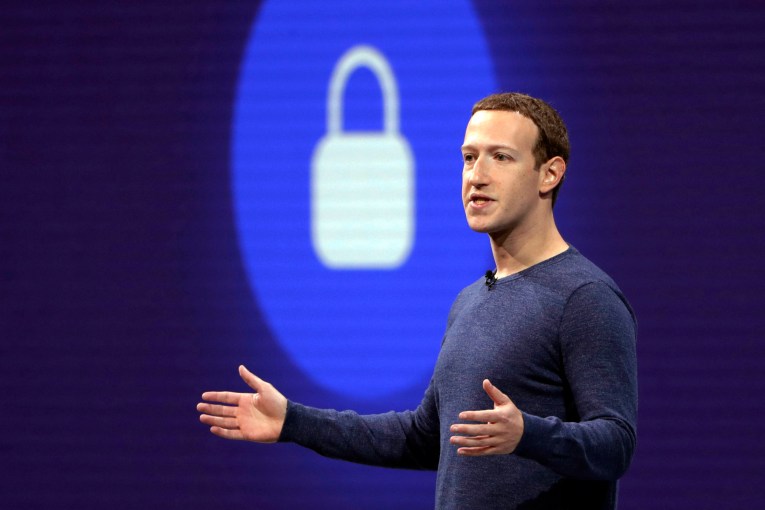A computer that can pass a law exam? Why you have every reason to be afraid of AI
There’s no question that Artficial Intelligence – AI to the uninitiated – is the next big thing for business and government. But the real question is whether it’s friend or foe, writes Greg Hallam


Creative jobs, like writing movie scripts and acting, are shaken by the AI threat. Screen Actors' Guild president Fran Drescher iOS seen after it was announced that SAG/AFTRA would go on strike over jobs being lost to AI. Photo: Yannick Peterhans-USA TODAY/Sipa USA /AAP Image
The computer technology world has always been the cradle of the next big thing: Think PCs; the internet; cloud computing; virtual reality and altered reality; big data and data analytics, including artificial intelligence.
Billions upon billions of dollars are made from tech booms. As we know, colossal new global companies form in just a few years and the economy and society are turned on their heads.
It’s said that generative AI is the daddy of them all – the changer of worlds .
Governments at all levels around the globe will have to try to shape the huge bow wave this new technology creates. Fears of rogue computers raking over the world were once the stuff of science fiction, but are now in the realms of the possibility.
Prohibition is not an option now that the AI genie is out of the bottle. Strict oversight and putting in place legislative and policy guardrails will be mandatory requirements for governments. Elections will be won or lost off the back of responses to this new technology.
Even in the last few weeks the increase in volume and rapidity of generative AI stories in both mainstream and social media has been staggering; the new phenomenon is well and upon us.
All sorts of perceived threats and wild claims will abound, and dare I say it the Antichrist will even get a mention somewhere along the line.
What is generative AI? It’s said to be artificial intelligence that can generate text, images, or other media in response to prompts.
Put another way, it’s computers replacing people in the creative, technical and administrative spaces. Machine learning, deep learning, even artificial neural networks have been with us for some time, but generative AI is new on the block.
The best, most recent public example is the ChatGPT bot which was developed just over seven months ago and has beaten chess masters and already passed both High School leaving and US law bar exams.
It’s also at the heart and centre of the four month-long Hollywood writers and actors strike due to threat generative AI poses to their future livelihood.
In my past life, generative AI replaced four data science PhDs that I had employed within 18 months of them starting, saving a fortune and greatly improving data processing and solving timelines. So the power of this computer science is very evident to me.
How big is generative AI really? Well the world famous McKinsey consulting group says that within 20 years, one in five jobs will be lost. But on the flip side it will grow the world’s economy by $4.4 trillion a year.
Global investment and banking giant Goldman Sachs said in March this year that generative AI would wipe out 300 million jobs world wide in much shorter time. The World Economic Forum forecast 85 million job losses.
There’s no escaping the enormity of what is upon us.
Even after applying the Gartner Group’s famous technology hype cycle test to generative AI, you realise it’s the Real McCoy and not a flash in the pan created by Silicon Valley promoters. .
For much of the last 25 years, being a so-called “knowledge worker” was a ticket to permanent employment. Now generative AI threatens the jobs of some of those who work in science, medicine, law, engineering, accounting, finance, banking etc; but especially the creative arts.
So a whole sector of hitherto untouched workforce will be feeling anxious about their future prospects. In many ways ,they are among the most skilled and capable people in the community and they will be creating a fuss as their jobs disappear.
Assuming generative AI is not a fad, or extra bells and whistles on your computer that you will never use, then what is the timeframe for its roll out. Depending upon which sources you consult, it’s between five and 20 years. My best guess is 10 years, driven by profit motive leading the way. As always the public sector will follow in time .
The head of the Gartner Group’s artificial intelligence practice recently said: “2023 is the year everything changed. Going forward, all areas of human endeavour will have to contend with the fact that generative AI is real and evolving at a rapid pace.”
In the meantime, expect some huge community debates about the benefits, threats and morality of generative AI. The only chance of missing the turmoil and commotion is finding a deserted island for the next decade.
a












